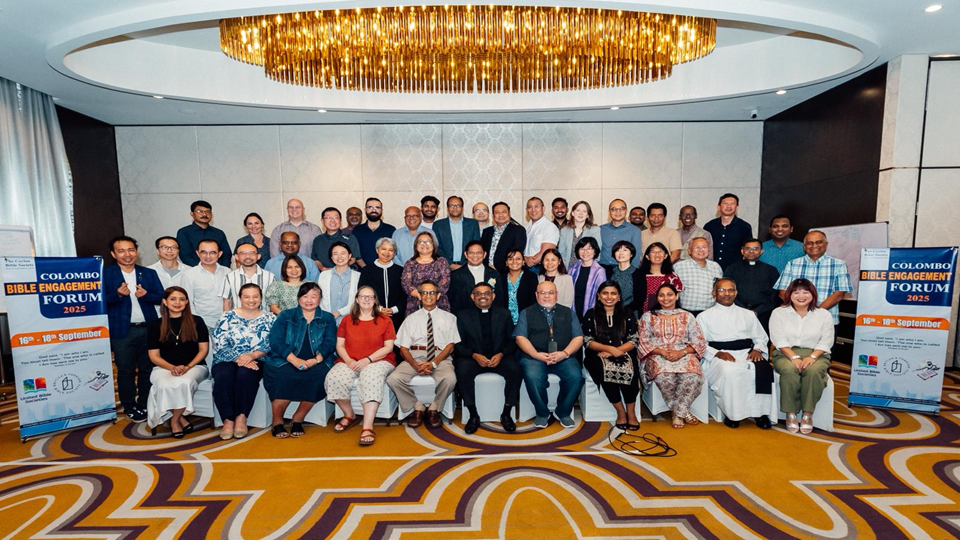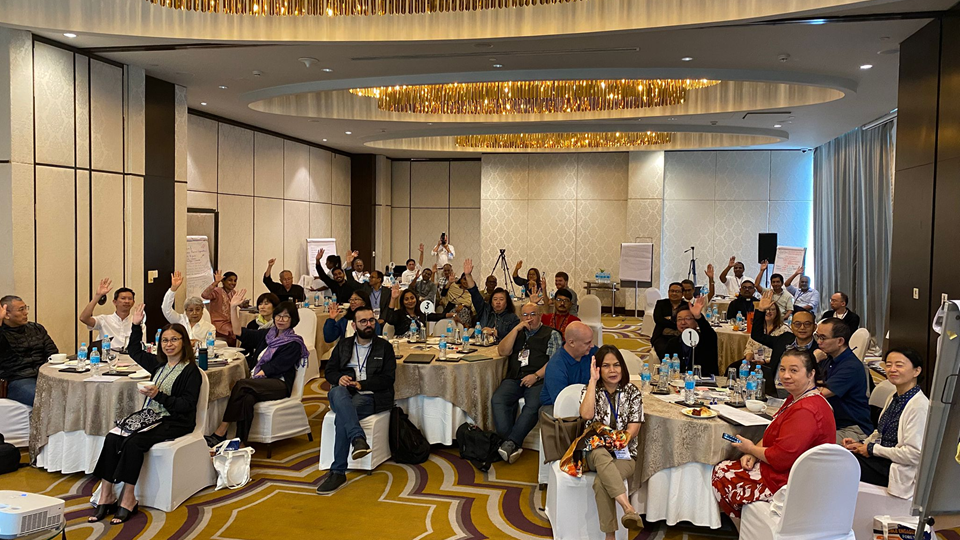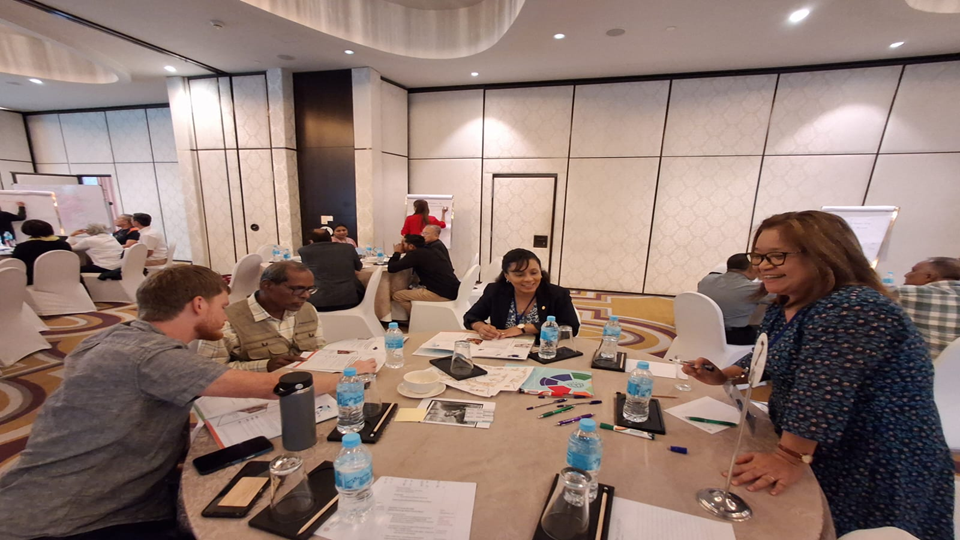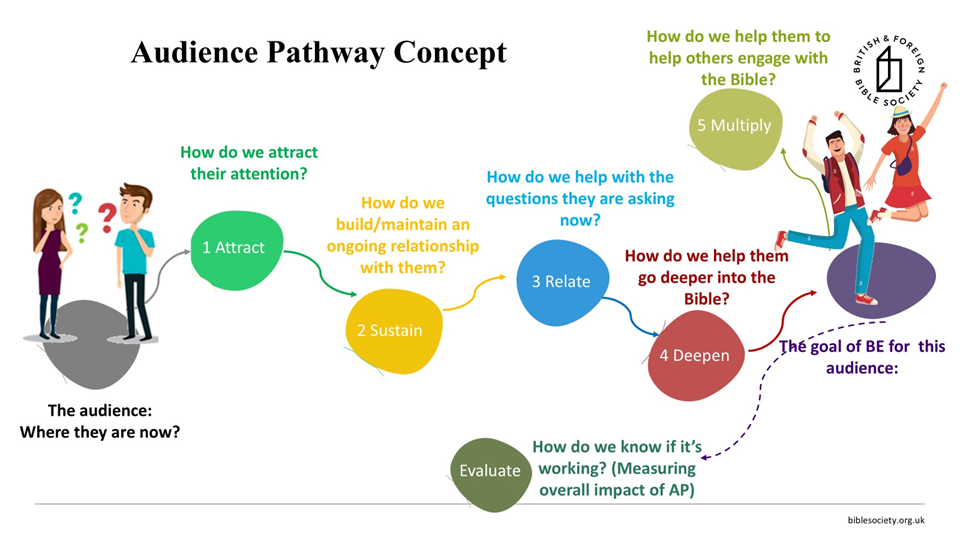
Scripture Engagement is not merely about reading the Bible; it is about allowing God’s Word to shape one’s heart, character, and conduct. It is one of the most powerful tools for teaching Christian ethical behaviour, grounding individuals and communities in values that reflect the life and teachings of Jesus Christ. The Bible, treasured by millions across the globe, holds within it timeless wisdom. At the heart of this wisdom is the Sermon on the Mount (Matthew 5 – 7), where Jesus sets forth a radical vision for life built on humility, mercy, forgiveness, justice, and love.
In this Sermon, Jesus calls His followers to go beyond mere observance of Mosaic law for the Jews, and for modern days communities, any other religious law or the law of the land into the deeper realm of transformed living. He blesses the poor in spirit, the meek, the peacemakers; He commands love for enemies, integrity in speech, and generosity without self-seeking. These teachings are not only central to Christian discipleship but have also echoed powerfully through the ages, inspiring moral leaders and reformers across diverse faiths and traditions.
Famous Christian Writers Engaging with Jesus’ Ethical teachings:
Dietrich Bonhoeffer emphasized discipleship as costly obedience. In The Cost of Discipleship, (in German in 1937 under the title Nachfolge), the English translation by R.H. Fuller was first released in 1948) he reflects on Jesus’ call to ethical living, arguing that grace demands moral action: following Christ means standing for truth and justice even at personal cost.
C.S. Lewis, in works like Mere Christianity (originally broadcast as a series of BBC radio talks between 1941 and 1944 during World War II. These talks were later compiled and published as a book in 1952. The first edition (published by Geoffrey Bles in London), explored the practical dimensions of Christ’s ethics, highlighting love, humility, and moral integrity. He insisted that Christian living is not about abstract ideals but a transformation of character and choices in daily life.
N.T. Wright focuses on the social and communal implications of Jesus’ ethics. In Jesus and the Victory of God (1996 by Fortress Press), he interprets the Sermon on the Mount as a call to embody God’s justice and mercy in society, stressing that ethical living must address both personal and communal transformation.
John Stott in The Message of the Sermon on the Mount (1978 by Inter Varsity Press (IVP)) underscores Jesus’ radical moral vision: He calls believers to authenticity, non-violence, reconciliation, and active love for others, showing that ethical teaching is inseparable from practical discipleship.
These reflections demonstrate that Scripture Engagement is more than study. It is a guide for ethical transformation. Through prayerful reading and meditation on Jesus’ teachings, believers are equipped to embody values that bring personal integrity, social justice, and compassionate living to the world.
Jesus’ Ethical Influence Beyond Christianity
The ethical teachings of Jesus, particularly from the Sermon on the Mount, have had a profound impact that transcends religious boundaries. They have spoken to the conscience of humanity, drawing admiration and even imitation from leaders of other faiths who recognised in them a vision for peace and justice.
Mahatma Gandhi (Hinduism): Gandhi drew deep inspiration from Jesus’ call to non-violence and love for enemies. Reflecting on the Sermon on the Mount, he said, “The message of Jesus, as I understand it, is contained in his Sermon on the Mount unadulterated and taken as a whole … If then I had to face only the Sermon on the Mount and my own interpretation of it, I should not hesitate to say, ‘Oh, yes, I am a Christian.’”. (Young India on 8 December 1927. Gandhi’s philosophy of ahimsa (non-violence), which became the backbone of India’s freedom struggle, was inseparably linked to Christ’s ethical vision.
Rabindranath Tagore (Hindu background): Tagore admired Christ’s spirit of self-sacrifice and universal love. While rooted in the Indian tradition, he recognised the liberating force of Christ’s ethics and saw in Him a light for all humanity, beyond the confines of religion.
Leo Tolstoy (Russian Orthodox reformer): Tolstoy was captivated by Jesus’ command to resist evil with good. His classic work The Kingdom of God is Within You (The first English translation appeared in 1894, translated by Constance Garnett, and was published in London by The International Publishing Company) was a radical interpretation of the Sermon on the Mount, calling for love, non-violence, and simplicity as the basis of social transformation. His writings, in turn, influenced both Gandhi and Martin Luther King Jr.
Dalai Lama (Buddhism): The Dalai Lama has openly acknowledged Jesus’ ethical depth, reflecting on Christ – Jesus Christ lived a life of humility, simplicity and service to others. That is something Buddhists greatly admire. For him, Christ’s compassion mirrors the highest ideals of Buddhism. Dalai Lama’s thought is very much reflected in his books – The Book of Joy, The Art of Happiness, and An Open Heart.
Khan Abdul Ghaffar Khan (Muslim): (Known as the Frontier Gandhi) He was a devout Muslim and a champion of non-violence. Inspired both by the Prophet Muhammad and by Christ’s teachings, he once remarked, “There is nothing surprising in a Muslim or a Pathan like me subscribing to the creed of nonviolence… ever since that day, it has been followed by Jesus Christ to this day.”
A Universal Call for Transformation
These voices reveal that Scripture Engagement does not stop within the Christian circle alone and the message of Jesus Christ is not confined to Christianity. His words have transcended boundaries of culture, language, and religion, offering humanity a vision of life grounded in love, justice, and reconciliation. The Sermon on the Mount, one of the greatest teachings in human history continues to challenge individuals and societies, pointing to an alternative way of living rooted not in power or domination, but in humility, forgiveness, and peace.
Our world is fractured by violence, dishonesty, greed, and division. The ethical teaching of Jesus in the Sermon on the Mount, offers a radical alternative – love for enemies, truthfulness, forgiveness, humility, and justice with mercy. Scripture Engagement is not just reading the Bible but living it, allowing God’s Word to shape our behaviour and transform society.
The need of the hour is clear: Christians must embody Scripture as salt and light in the world. Leaders across faiths from Gandhi to the Dalai Lama have drawn from Christ’s vision of peace and compassion. If we live out these teachings, the Church can once again be a beacon of truth, justice, and love, bringing hope to families, communities, and nations.
 By Dr. Hrangthan Chhungi
By Dr. Hrangthan Chhungi
A/D Church, Public Relations and Resource Mobilisation
The Patmos Initiative: Scripture Engagement Forum 2025 – Hope for Minority Christian Communities
On September 16 – 18, the British and Foreign Bible Society (BFBS) in partnership with the United Bible Societies (UBS), and graciously hosted by the Ceylon Bible Society, brought together nearly 50 participants from across the Asia-Pacific region and the Mauritius Bible Society in Colombo. This three-day Scripture Engagement Programme was part of the ongoing global research known as The Patmos Initiative. Inspired by the Apostle John’s vision on the island of Patmos, the initiative seeks to discern how God’s Word can reach and transform lives in today’s complex and challenging world.
The Global Vision
The Patmos Initiative looks at the world through seven global contexts, each presenting its own challenges and opportunities for engaging people with the Scriptures. The Colombo consultation focused on Cluster 6, a context where Christians are a minority surrounded by diverse and often dominant religious traditions. Such as Hinduism, Islam and Buddhism.
The Colombo Experience
The sessions were more than academic deliberations. They were moments of deep sharing, prayer, and vision casting. Participants listened to stories of resilience and hope from Bible Societies working faithfully in minority settings. There was a genuine sense of solidarity that though scattered across nations, participants are united by the same calling to share the life-giving Word of God.
Practical methods were explored: from using Scripture in interfaith dialogue, to building bridges through community projects, to nurturing young believers in environments where faith is fragile.
Key Learnings
Scripture in Minority Spaces: The Bible continues to be a source of courage, healing, and identity for Christians who often feel invisible in their societies.
Power of Partnership: Working together across Bible Societies, churches, and local communities is essential to make a lasting impact.
Digital Frontiers: The consultation acknowledged the urgent need to embrace digital platforms and emerging technologies, not only to reach younger generations but also to ensure access for those isolated in remote or restricted environments.
AI Perspectives: Thought-provoking discussions explored, with much caution how artificial intelligence tools can assist in Bible translation, Scripture engagement, and contextual ministry, while also raising important ethical questions about faith, authenticity, and safeguarding the message of God’s Word.
Encouragement to Persevere: Participants left with renewed determination, knowing they are not alone but part of a global family standing with them.
A Journey of Hope
The Colombo gathering was a reminder that God’s Word cannot be silenced, even in the most challenging environments. Just as the Apostle John received the Revelation on Patmos in exile, today’s minority Christian communities continue to encounter the living Christ through the Scriptures. The Patmos Initiative is more than a research project, it is a movement of hope, equipping Bible Societies to engage hearts with Scripture in ways that bring transformation, resilience, and unity in Christ. Much communication and project sharing will continue across the globe.
Audio Bibles- In Indian Languages by BSI in Collaboration With Davar International Partners







